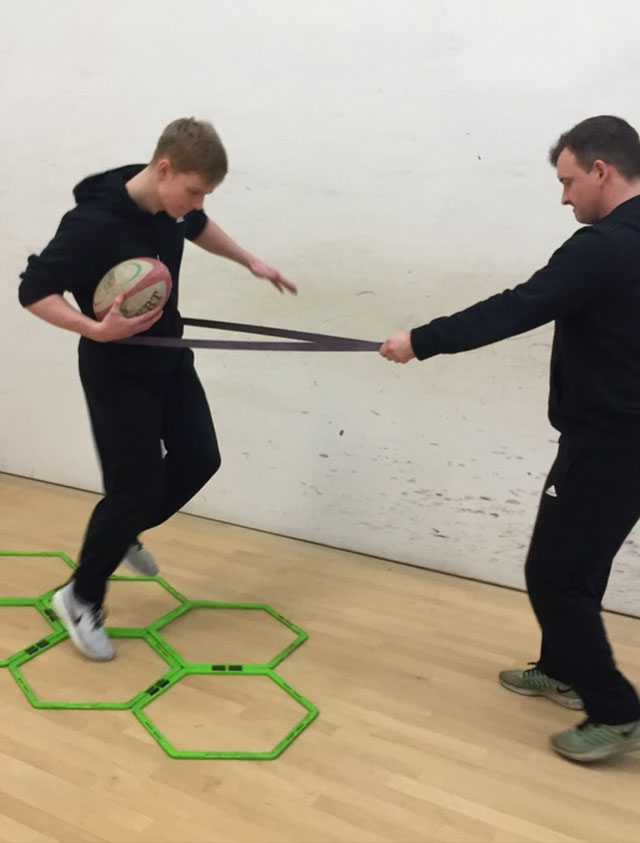Well, if you thought that getting fit and healthy was an intimidatingly-difficult endeavour, it certainly doesn’t have to be! Sure, it can take dedication, hard work, and hopefully, lots of fun, but we all have to start somewhere — and that’s why you’re here, to learn the basics of nutrition and fitness.
In this blog post, we will be taking a look at the big picture of getting fit and healthy, mapping out what you need to know about nutrition and fitness so you can start to feel motivated and still see progress. You’ll learn how to fuel your body right and the basics of how to exercise in a healthy and sustainable way. Plus, I’m throwing in my own little tips and tricks along the way which I discovered while transforming my own body and mindset.
So let’s dive into getting fit and healthy and get ready to be overwhelmed with some amazing knowledge — we’re talking the basics of nutrition and fitness.
Quick Review of Key Points
The basics of nutrition and fitness involve consuming a balanced diet full of whole, unprocessed foods, making time for regular physical activity, and prioritising adequate rest and recovery. It is essential to speak with a qualified professional for tailored advice specific to your unique needs.

The Basics of Nutrition and Fitness
In order to get fit and stay healthy, understanding the basics of nutrition and fitness is paramount. Nutrition can be defined as the nourishment of the body while fitness refers to the ability of the body to effectively perform daily activities. There are many different approaches to both nutrition and fitness, each of which can have a dramatically different effect on an individual’s overall health and wellbeing.
Advocates of a traditional diet rich in nutrients that also supports an active lifestyle believe in a balanced approach which combines regular exercise with healthy eating habits. Proponents argue that this approach is effective at helping individuals maintain their physical health while also providing numerous psychological benefits associated with these activities. Specifically, they point out that rigorous physical activity can help reduce stress levels while making healthier food choices can improve mental health.
On the other hand, some experts lean towards an individualised approach which involves taking into account not only nutrition and physical activity but also genetic predispositions, past medical history and age-related changes. These proponents believe that exercising too much or ignoring certain foods for long periods of time can be detrimental to an individual’s overall health.
Overall, whether you choose a traditional or individualised approach to nutrition and fitness, it is important to take into account all relevant factors which play a role in an individual’s health, including what kind of diet is best for them, how much exercise they should engage in regularly, and any medical conditions they may have. With this information in mind, we can transition our discussion to explore what role food and exercise play when striving for improved physical and mental well-being.
Main Takeaways
In order to maintain physical and mental health, it is important to understand the basics of nutrition and fitness. A traditional diet that incorporates regular exercise and healthier eating habits is an effective approach for many people. Alternatively, an individualised approach may be more suitable, taking into account genetic predispositions, past medical history and age-related changes. Regardless of which approach is chosen, it is essential to consider all relevant factors to ensure optimal health.
What is the Role of Food and Exercise?
Now that we have discussed the basics of nutrition and fitness, it is important to understand what roles food and exercise plays in our journey to a healthier lifestyle. Exercise can drastically reduce the risk of numerous types of diseases such as cardiovascular disease and diabetes and can lead to a healthier physical image which can improve mental health.
Food is equally as important as exercise when creating and maintaining a healthy lifestyle. Eating a balanced meal helps ensure the body is receiving the correct amounts of vitamins, minerals, proteins, fats, and carbohydrates that are needed to run at its optimum level. Eating healthy meals on a regular basis decreases blood sugar levels, unhealthy cholesterol levels, and reduces blood pressure.
While some may debate that eating in extreme moderation will produce the same physiological effect as dieting moderately, research has found that this is not true. The human body needs nutrients to maintain energy at rest as well as energy used while exercising. People who attempt dieting in extreme moderation may find themselves exhausted both mentally and physically due to lack of nutrients from their food.
It is easy to see that both food and exercise play an enormous role in helping us become healthier versions of ourself. It has been proven that fueling our bodies with proper nourishment along with incorporating an exercise routine into our lives will significantly reduce the potential for life threatening diseases down the road. Now let’s look into which types of food should be considered for a healthier lifestyle.

Types of Food
When it comes to food, there are two main types of nutrients: macronutrients and micronutrients. Macronutrients provide us with energy, while micronutrients are substances that we need in smaller amounts for proper growth and development. The debate often arises when it comes to what kinds of macronutrients should be utilised for a healthy diet. The traditional school of thought touts the importance of carbohydrates and recommends limiting fat intake. On the other hand, newer research suggests that a diet high in dietary fat as opposed to carbohydrates can be just as beneficial—or even more so—when it comes to health and weight management. Subsequently, it is important to consider both sources of macronutrients when developing an efficient diet plan.
While carbohydrates continue to play an important role in people’s diets worldwide, a growing number of individuals have switched their focus to higher-fat diets, such as those found in the ketogenic diet. Such a low-carbohydrate, high-fat diet typically consists of minimally processed whole foods such as fish, eggs, nuts, seeds, vegetables and some healthy fats such as avocados and olive oil. One recent study published in the International Journal of Environmental Research and Public Health showed that after four weeks on a ketogenic diet, subjects reported improved physical performance, increased satisfaction with their bodies, fewer cravings and feelings of hunger, and improved lipid profiles (1).
Overall, it is important to remember that various macronutrients come in many different forms and can have either positive or negative impacts on our health depending on how they are incorporated into one’s diet. Moreover, choosing whole food sources over processed alternatives is always beneficial for achieving optimal health outcomes. In the next section, we will further explore the role of macronutrients and micronutrients in providing us with the balanced nutrition necessary for long-term good health.
Macronutrients and Micronutrients
When it comes to the types of food, understanding the importance of macronutrients and micronutrients is a crucial piece in creating a healthy nutritional plan. Macronutrients refer to our primary sources of calories that include carbohydrates, proteins, and fats. Carbohydrates are broken down into sugar and provide us with quick energy; proteins are long-chain amino acids that help with metabolic functions and muscle repair; while fat provides our body with insulation as well as help in energy storage.
Conversely, micronutrients are vitamins and minerals essential for our overall health. While they may not provide much caloric value, having the right amount of each nutrient is important for regulating bodily functions. Whether you follow a keto diet or a plant-based diet, there is an array of foods that you can incorporate in your mealplan to ensure you are getting enough macronutrients and micronutrients to support your nutrition goals.
The optimal balance between macronutrients and micronutrients will be different for everyone depending on one’s lifestyle and dietary needs, so consulting a professional nutritionist will be beneficial in curating an individualised programme customised for you. With that being said, understanding how to strike the right balance between macronutrients and micronutrients will greatly improve your overall physical wellbeing and set the base for establishing healthy eating habits.
Healthy Eating Habits
After discussing the importance of macronutrients and micronutrients, it is important to also discuss healthy eating habits. For many people, diet is the cornerstone of health and fitness. Eating in a balanced way can help you feel better and reach your goals.
One approach to healthy eating is to follow a specific diet plan, such as Paleo or veganism. These plans can give structure to trying out different types of foods, so that you don’t go overboard on any one food group or nutrient. Some people may find it necessary to count calories or limit portions in order to lose weight. On the other hand, others might be able to eat healthy without worrying about exact numbers. Ultimately, the best diet plan is whichever one works best for you and fits with your lifestyle.
Another approach is to focus on eating whole, unprocessed foods. Choosing real, nutrient-dense foods like fruits and vegetables can provide your body with all the nutrients it needs to stay healthy and energetic, while avoiding added sugars and unhealthy fats. Additionally, aiming for variety within each type of food will ensure that all your nutritional bases are covered.
These ideas may seem simplistic but they form the core principles of healthy eating habits. Making small changes or experiments with diet can add up over time and yield big results. As such, it is important to remember that successful nutrition requires persistence and consistency in order for long-term success.
Understanding how nutrition can help you reach your fitness goals is key for many individuals, who often need subtle guidance towards better eating habits. With this knowledge in hand, we can now move onto understanding how nutrition can be used as a tool to further enhance fitness efforts.
- According to the Academy of Nutrition and Dietetics, proper nutrition is key to achieving optimal physical health.
- Exercise plays a major role in improving cardiorespiratory and muscular endurance, body composition, flexibility, balance, coordination and strength.
- A study published in 2020 found that a combination of both diet and exercise can help reduce chronic inflammation which has been linked to heart disease, stroke and cancer.
How Nutrition Can Help You Achieve Your Fitness Goals
Maintaining healthy nutrition is essential for achieving any fitness goal. A balanced diet of whole, nutritious foods can provide the body with all the vitamins and minerals it needs to form the building blocks necessary for strength and endurance training. Proper nutrition is especially important when transitioning from beginner to intermediate levels, as good fuel helps an athlete become more efficient in their workouts, become capable of advanced exercises, and stay energised throughout the day.
Studies show that a nutritious diet can help accelerate results when combined with a consistent exercise plan. Eating nutrient-dense meals before and after a workout can optimise performance levels, allow for faster recovery times, and sustain energy throughout the day. Consuming carbohydrates prior to exercise helps sustain energy and fats afterwards helps restore the body’s depleted glycogen reserves. Additionally, protein consumption after exercise promotes muscle growth and encourages a healthier metabolism. A well-rounded approach to nutrition including fresh fruits and vegetables along with lean proteins, healthy fats, and complex carbs is key for a successful fitness journey that yields desired results.
While it is important to ensure your diet is meeting your nutrition requirements for optimal performance, focusing on food quality over quantity is just as important. Overly restrictive diets that cause large caloric deficits can disrupt an avid exercisers’ energy cycle and hinder recovery processes while also impairing their ability to reach personal goals. To achieve desired results while preserving health and wellness in mind, strike a balance between healthy eating habits and proper macronutrient planning that meets individual needs.
The importance of balanced diet should not be overlooked when striving for one’s fitness goals; accordingly, the next step toward building a sustainable programme takes into consideration not only what we eat but also how much we consume.

Balance is Key: Calories and Shapes
Now that we’ve discussed how nutrition can help you achieve your fitness goals, it is important to understand the basic concept of calorie balance – or the idea that calories in must equal calories out. When it comes to weight management, it all boils down to the simple equation: you will gain weight if you consume more calories than you expend; and you will lose weight if you consume fewer calories than you expend. Of course, depending on your goal, your specific calorie and macronutrient needs may vary, but the basics remain the same; achieving a balance between energy consumed (calories) and expended (energy output).
Ultimately, this means that in order to get fit and stay healthy, one must identify an individualised calorie balance that works for them. Exercise helps to create an energy deficit (burn more calories than eaten), while having a structured dietary plan helps us ensure that our calorie intake meets our specific physical needs. This might mean a combination of exercise such as HIIT and resistance training to build muscles along with eating a balanced diet that is tailored to reach your predetermined calorie goal.
The human body is also capable of changing its shape based on several factors such as genetics, environmental triggers like nutrition & exercises, and body composition. Nutrition helps promote healthy body composition by balancing macronutrients intakes from carbohydrates, proteins and fats sources. The body needs to sustain functionally throughout on whether getting into an athletic and optimal performance or just maintaining total health. No single approach will work for everyone since everyone’s needs are different based on genetics, goals, and activity levels.
To sum up, consuming too few or too many calories can lead to health issues and it is important to maintain the right energy balance for each individual to get fit and stay healthy. In light of this understanding of calories and shapes, let us now turn our attention towards understanding protein, fats and carbohydrates which play essential roles in keeping us energised and nourished.
Protein, Fats and Carbohydrates
Protein, fats, and carbohydrates are three key macronutrients that make up the food we eat. All three serve a variety of functions in the body: proteins build and repair tissue, fats provide energy and store fat-soluble vitamins, while carbohydrates provide our bodies with immediate energy and fibre. When navigating nutrition and fitness goals, understanding the roles of each macro is essential to creating healthy meals and exercising effectively.
The debate on protein consumption can be divided into two camps: those who prioritise it, and those who don’t. Those prioritising protein believe it serves a critical role in muscle growth and recovery following intense physical activity; advocates suggest setting your baseline protein goal at 0.5-1 gramme per pound of bodyweight depending on factors such as gender and activity level. This belief is supported by decades of research demonstrating its importance to athletes. On the other hand, some say that these amounts are unnecessary for individuals not looking to build muscle or train for competitions. It is true that there will be little benefit to aggressive protein supplementation for people who aren’t working to maximise muscle growth, but getting adequate amounts (15-30% of daily intake) are still recommended for general health benefits such as weight maintenance, increased satiety, etc.
Fats go beyond providing energy: they also help improve nutritional absorption, regulate hormones, support brain development and more. Despite their numerous benefits, many sources advise against consuming too much fat due to its high caloric content; one gramme of fat contains 9 calories versus 4 calories in one gramme of carbohydrate or protein. For this reason, as well as concerns about developing cardiovascular disease over time, it is important to keep an eye on fat intake when attempting to get fit and healthy – opt for healthier monounsaturated sources such as nuts or avocado rather than large amounts of saturated fats from processed foods or bacon.
Finally, consuming enough carbohydrates is vital for providing our bodies with sustainable energy throughout the day – about 45-65% of daily calories should come from carbs. Many myths have arisen around the notion that “all carbs are bad”; however this isn’t always the case for individuals seeking improved health outcomes or enhanced performance – opting for unprocessed sources like vegetables or whole grains can bring major benefits. Low carb diets may be helpful for losing weight initially but can lead to nutrient deficiencies long term if not supplemented with smart selection and portion control.
In summary, when attempting to exercise regularly and effectively while eating nutritiously it is important to consider macro balance: getting roughly 1/3 protein, 1/3 fat and 1/3 carbohydrates will support your goals holistically while minimising risk of poor health outcomes along the way.
Responses to Frequently Asked Questions with Detailed Explanations
– How do I create a balanced diet and workout plan?
Creating a balanced diet and workout plan can be done by following some basic nutrition and fitness principles.
First, when it comes to dieting, it’s important to focus on eating whole, nutritious foods like lean proteins, fruits and vegetables, healthy fats, and complex carbohydrates. Eating a variety of foods from the different food groups each day can help ensure you are getting key vitamins, minerals and other nutrients your body needs. Additionally, try to limit processed foods as much as possible and cut back on foods that are high in fat, sodium, and added sugars. Going for variety with foods is also important – don’t just eat the same mix of carbs, protein and fats over and over again.
Next, when it comes to exercise, creating an effective workout plan is all about making sure you do something you enjoy that will challenge your body. A balanced workout plan should include both low-intensity exercises like walking or yoga as well as more vigorous activities like biking or running. Doing strength training with weights or resistance bands is also an important component because it helps build muscle and keeps your metabolism humming. Aim for at least 30 minutes of moderate physical activity most days of the week; if possible add an extra few days of more intense workouts to really maximise your results.
By following these simple tips about creating a well-balanced diet and workout plan you’ll be well on your way to being fit and healthy!
– What are the essential elements of a healthy nutrition plan?
A healthy nutrition plan includes five essential elements: whole foods, portion control, balance, variety, and hydration.
Whole foods provide the best nutrition. Eating a variety of unprocessed ingredients like fruits, vegetables, lean meats, low-fat dairy products, beans, legumes and nuts will ensure that you get all of the essential vitamins and minerals your body needs.
Portion control is important to ensure that you are not consuming too many calories or unhealthy food groups in one sitting. It is important to choose servings that are appropriate for your caloric goals and activity level. Eat slowly and pay attention to your body’s cues so that you don’t overindulge.
Balance is key when creating a healthy diet. Enjoying a mix of all food groups across meals and snacks will help prevent overeating any one type of food while also providing the wide range of nutrients your body needs to function properly.
Variety helps keep your food choices interesting while providing your body with an array of nutrients it needs. Spend time exploring different types of cuisines and new ingredients every week or month to make sure you’re getting a wide selection of nutrients.
Finally, proper hydration keeps your body fat burning metabolism running efficiently and reduces fatigue, headaches, and cravings for sweet treats. Aim to drink eight 8-ounce glasses of water per day (more if you are active) from pure sources like tap water or mineral water.
– What exercises should I focus on to reach my fitness goals?
It depends on your individual fitness goals. If you’re looking to improve strength and power, you should focus on exercises such as squats, deadlifts, presses, and Olympic-style lifts. If you’re focused on increasing cardiovascular endurance, you should focus on exercises like running, rowing and cycling. If you’re looking to improve flexibility and balance, then exercises like yoga, Pilates and stretching could be beneficial. Ultimately, it’s important to tailor a workout routine that works for your individual needs as no two people are the same.





